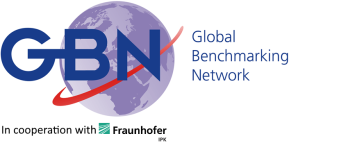The 12th International Benchmarking Conference took place in December 2018 as part of the global organizational excellence congress. The Global Organizational Excellence Congress was hosted and sponsored by the Abu Dhabi Chamber of Commerce & Industry (ADCCI).

In addition to the three-day IBCON, the International Conference of the Asia Pacific Quality Organisation (APQO) and several awards ceremonies were held, including the 3rd ACE Team Awards Competition and the 18th Global Performance Excellence Award.
The events targeted senior leaders in both the private and public sectors. As announced in the previous newsletter, the focus was on discussing best practice with delegates representing local companies, learning from the finalists who will participate in the International Benchmarking Awards and the International Best Practice Competition, learning from GBN experts around the world and demonstrating how benchmarking will improve business results, promote innovation and support longer term sustainability.
For an overview of all speeches that were given, you can find the presentations in the internal member area on the GBN homepage and the summaries under the following link.
Welcome
Robin Mann gave the opening presentation and introduced the agenda as well as the organisers, partners and the organising committee. He also highlighted the number of registered participants and their distribution in the member countries.
Quality, Improvement, Benchmarking and Innovation in the context of Performance Excellence
In his speech, Suresh Lulla clarified the importance of the customers to define quality.
In order to meet the customer’s requirements, the entire process from purchasing to marketing had to be adapted to the customer’s needs.
He emphasizes that quality improvement goes hand in hand with challenging standards. In the best case, quality should be faster, better and cheaper. He cites simplification as the basis for innovation to make the product stand out.
As a core criterion for performance excellence, he names customer focus, followed by results as another important criterion. Leadership, strategic planning, data, information, knowledge, workforce focus and operations focus should also be used.
Suresh Lulla also made clear that the challenges in terms of ensuring Performance Excellence are Product Life Cycles Shrinking, Attention Spans Shrinking, Digital Customers and Robotic Process Automation.
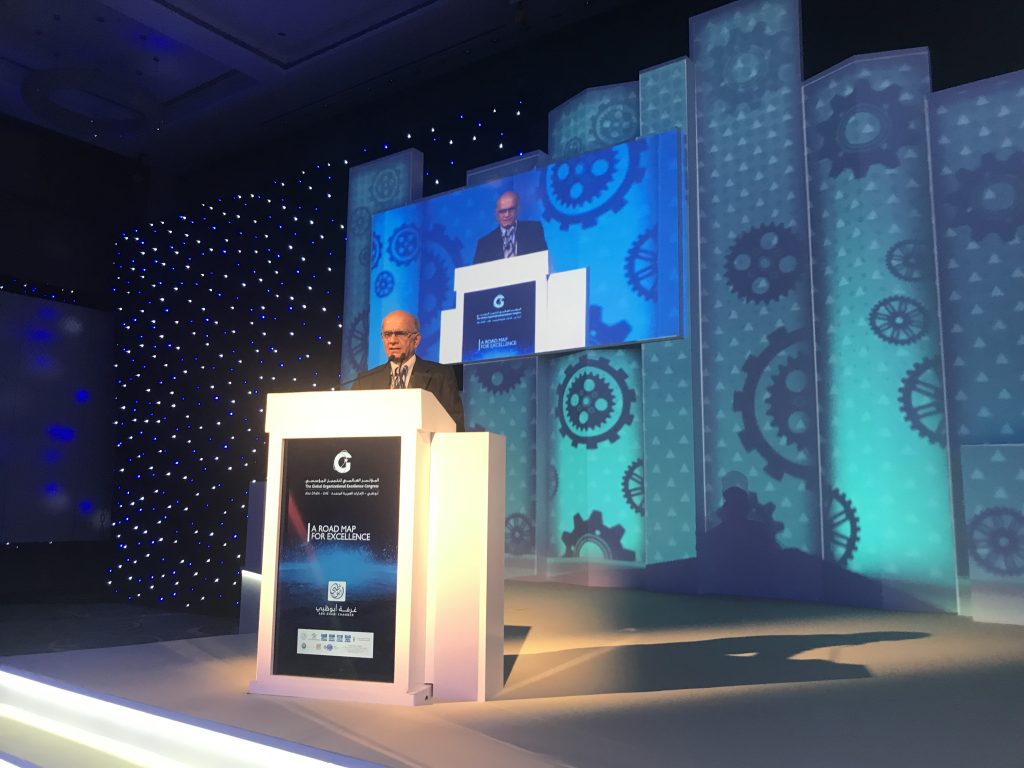
Industry 4.0 – Status, Implementation, Outlook
In his keynote speech, Prof. Dr.-Ing. Holger Kohl emphasized digitally integrated production (dip) or industry 4.0 as a promising solution for accelerating production processes and reducing costs. The challenge for many system suppliers is that customers order components from materials that are not designed for standard production processes. Coordination is therefore anything but simple in the case of custom-made products.
Digitally integrated production promises both intervention in existing systems and far-reaching restructuring of process chains. Despite changes in production parameters, the production of plastic components can be fast and economical thanks to integrated modular product, production and IT architectures. This is ensured by new technologies such as Modular Shopfloor IT, which flexibly combines production systems in new process chains and is thus able to realize customer-specific orders.
First Global Assessment on the current state of Organisational Excellence
Dawn Ringrose presented the «First Global Assessment on the Current State of Organizational Excellence», which was launched in May 2015. This research aimed to unite the quality professional on a common project and has been supported by the Global Benchmarking Network, ISO Technical Committee 176 and International Academy for Quality.
Dawn explained that the study is intended to provide data on the extent to which organizations have a culture committed to excellence and have deployed best management practices that are common to high performing organizations and found in excellence models.
She emphasises the link between implementing an excellence model and improving organizational performance and the study’s objective of obtaining aggregated results that can be broken down into company size, sector and country (region).
After presenting the most important key data of the study, Dawn Ringrose makes clear the importance of the project for the development of a global OE index and the added value it will create in the future.
She cites the possibility of strengthening the importance of excellence models, of contributing to the local economy, trade and resident quality of life and enabling all countries to participate, in a more competitive and sustainable way in the global economy.
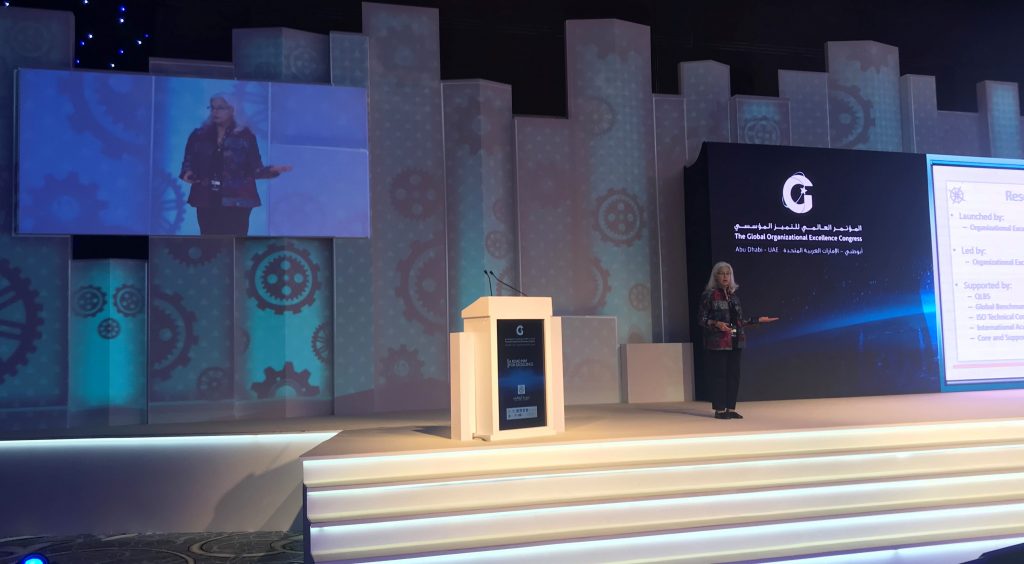
Benchmarking the Competitiveness of Organisations
In his keynote speech, Khashayar Ataie presented a study in which he addresses competitiveness as a key criterion for assessing the success of companies. He emphasizes the importance for Iranian companies as they were confronted with a volatile external environment during the nuclear sanctions. Khashayar Ataie examines a model that takes into account a selected number of financial, economic and productive metrics as well as other metrics available from companies› financial statements. This study was applied to 29 selected companies in the pharmaceutical industry and 20 measures of the model were selected.
The study endeavours to examine whether the bigger or smaller firms are affected more severely by the nuclear sanctions through comparing their competitiveness over the mentioned time.
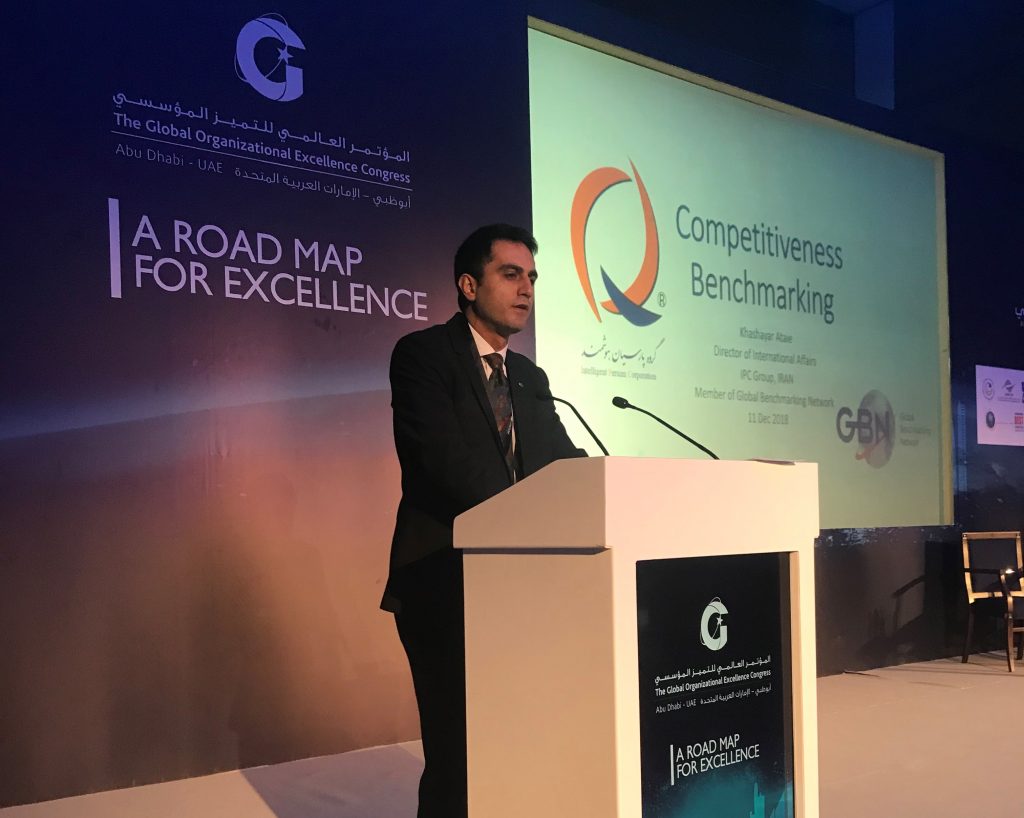
Global Organizational Excellence for the Next 50 Years: Where We Should Be Going and Why
Global organizational excellence frameworks have been around for 30 years. However, by 2018, on an optimistic basis in most nations, only 10-20% of individuals or organizations in 2018 know what these frameworks mean or actually use them to manage their businesses. Dale Weeks stresses that a «quantum leap» in performance results is needed. He raises the question of how and why to transform this situation to a level where 80% or more of our companies apply Performance Excellence principles on a daily basis. In his presentation, he builds on the role that Edwards Deming and Joseph Juran and other leaders have played in the first 30 years and sets a specific global visionary direction for all global efforts to achieve excellence over the next 50 years.
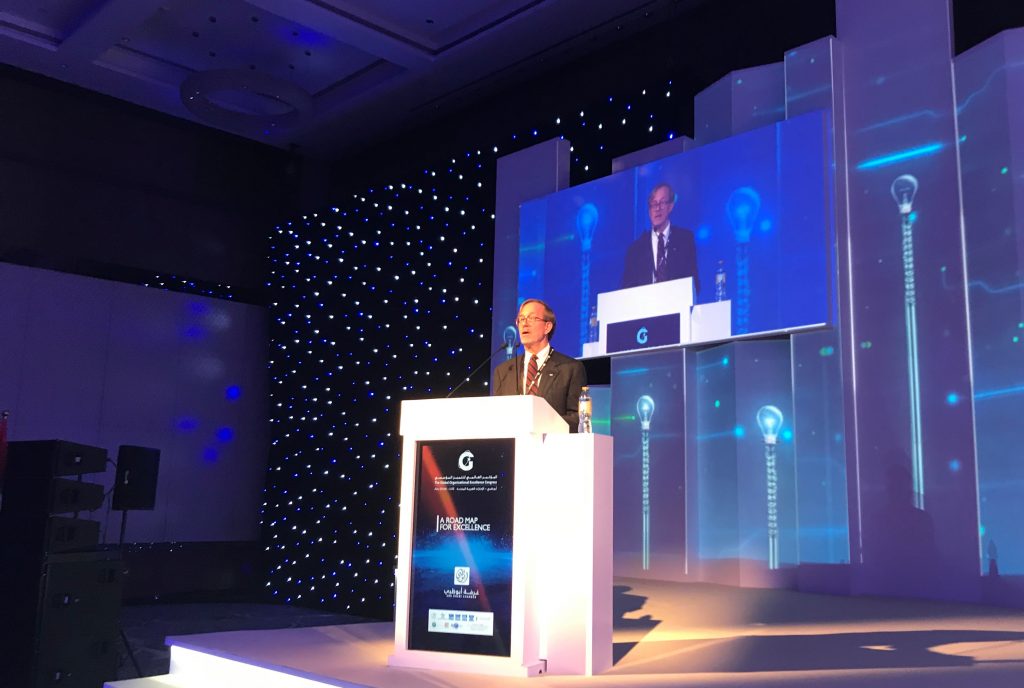
GBN Secretary at Fraunhofer IPK

Jan-Patrick Cap
Pascalstr. 8-9
10587 Berlin
Germany
+49 / (0) 30 / 39006-304
secretariat(at)globalbenchmarking.org
